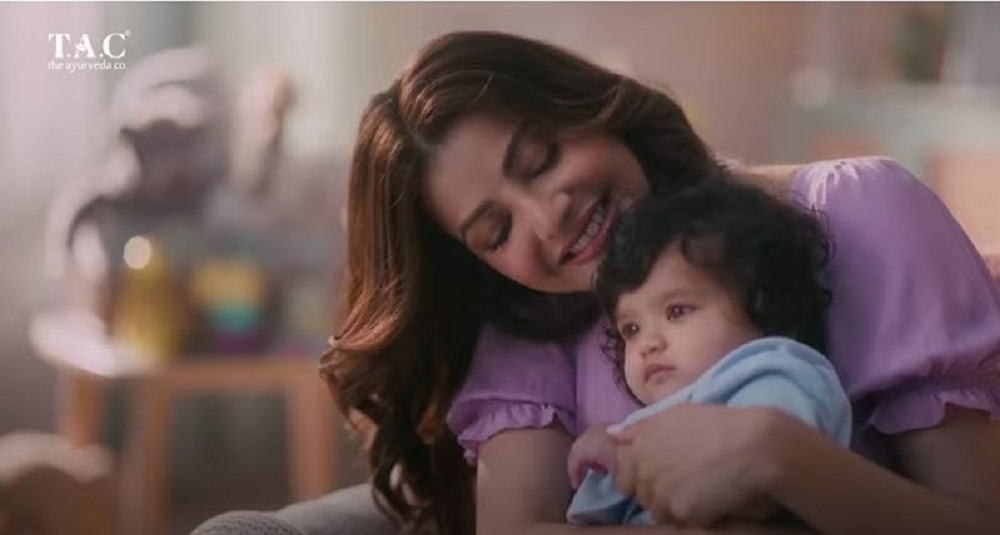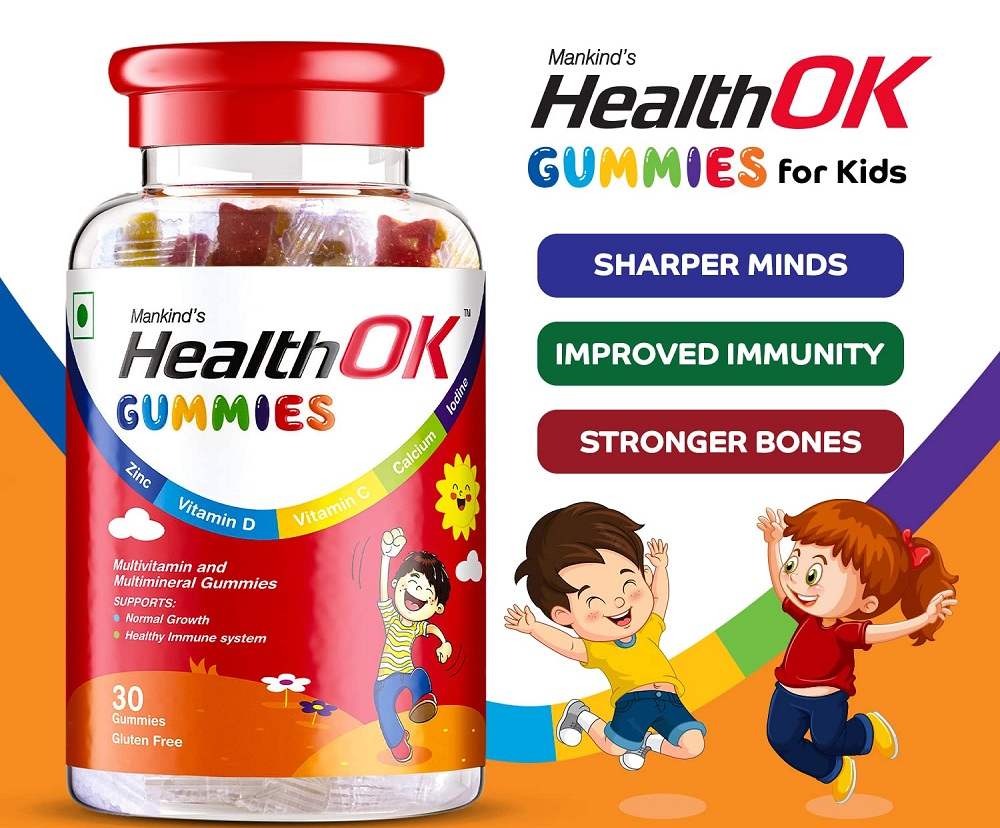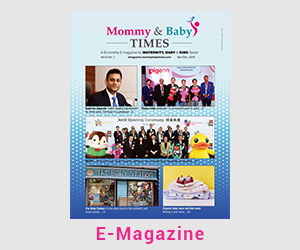As sustainable fashion is in trend, organic baby and kids wear is growing like never before. Organic fashion is seemingly a gleaming market segment in terms of its future growth and displays immense potential.
January 21, 2020

Organic and sustainable fashion has caught the fancy of parents worldwide. Today, millennial parents are much more mindful in terms of incorporating sustainability into their way of life. In the past recent years especially, the organic baby products market has registered impressive growth. This distinctive behavior of millennial consumers means being well-informed and hand-picking the best products or the crème de la crème, especially when it comes to their little ones. An increasing tribe of young consumers today have the discretion to adopt ethical/sustainable fashion since fast fashion and mass production of clothes in rapidly changing styles is constantly being questioned and scanned.
It is important to ask ourselves: how could we possibly buy things for ourselves while taking care of the environment and making responsible choices when fashion is concerned? That is why it is termed ‘Eco-Fashion’ or ‘Sustainable Fashion’ as it drives us to make sustainable choices and makes us consider the ethical aspects of fast fashion.
Wearing ethics: mindful fashion

A growing number of consumers are encouraging ethical fashion that de facto reduces the carbon footprint and are mindful of the impact the fashion industry has on the environment. They know quite well that a hangtag using the word “sustainable” does not necessarily imply that clean processes are being used in the development of that garment. They are ready to go that extra mile to understand what goes behind the manufacturing of organic textile garments and also the entire supply chain, production processes, as well as the product afterlife. And by definition, sustainable fashion is driven by embracing environment-friendly practices like the use of natural fibers, utilizing less amount of water and natural dyes as a replacement for synthetic petroleum-based fibers.
According to a Nielsen poll of 30,000 consumers carried out in 60 nations, 73 percent of millennial consumers would readily pay more for ethically and sustainably made clothes. As per the market estimate and reports, the sales of baby and toddler wear scaled up from Rs. 5,790 crores in 2016 to Rs. 8,950 crores in 2019. The market is shining bright in terms of displaying opportunities for further growth and proliferation.
According to a report by TOI, Myntra, which has 40 dedicated brands and 100 national brands that carry infant wear in their assortment, is planning to take onboard some dedicated organic clothing brands and winter collections for babies very soon.
How could we possibly buy things for ourselves, while taking care of the environment and making responsible choices when fashion is concerned?
GOTS (Global Organic Textile Standard) certification and Organic Textile production in India

It is an internationally recognized organic textile standard. This ensures the organic status of textiles from the harvesting of the raw materials through environmentally and socially responsible manufacturing to labeling, to provide credibility to the consumers. Only textile products that contain a minimum of 70% organic fibers can become GOTS-certified.
India is the leading global textile manufacturer and the second-largest producer of natural textile fibers in the world and the major fiber produced is cotton. Other fibers produced in India include silk, jute, wool, and man-made fibers. Furthermore, 60% of the Indian textile industry is cotton-based. The global organic clothing industry represents just approximately 1% of global consumption. There has also been an influx of other natural fibers from Hemp, Lotus, Banana, Aloe Vera, etc coming into fabrics reducing the stress on cotton farming.
Now, how viable and potent this organic fashion segment is an important aspect to consider so as to understand and analyze its future growth in the fashion market. So, come to think of it, fashion is no longer just about trends and design; however, it is also a means to encourage sustainable choices.
Manufacturing hub of organic textile in India
Tiruppur in Tamil Nadu has a host of integrated units and thousands of MSMEs (medium, small and micro enterprises) that carry out specific functions for yarn, textiles, and apparel manufacturing making it the leading knits production hub of the country. It is also known as the knitwear capital of India as it accounts for 90% of India’s cotton knitwear export. India boasts of exclusive zones for garment factories, such as Tirupur and Bengaluru in South India and Noida and Gurugram in the North part of India.
The baby fashion segment has snowballed its size, especially in the last few years and there are existing leading players in the segment which has launched its baby and kids apparel category. With India being home to an estimated 120 million kids in the 0-4 year age group, the retailers believe the growth rate of the infant-wear market is quite parallel to the kidswear market. So much so that selling small garments has truly become a big business for retailers.
Leading the frontier: Organic Baby and Kids Fashion Brands
With the sharp rise in sustainable clothes manufacturing, there are many emerging distinct lines of organic babywear and kidswear brands in India.

Berrytree houses a wide range and stylish range of organic cotton apparel for babies and kids up to the age of 8 years. The company is headquartered in Delhi and was started in 2014. Charting out the business story of the brand, Parin Jain, the founder of Berrytree says “well, honestly, it was a well-thought-out plan. We wanted to introduce something unique and there was absolutely nothing in the Organic Apparel segment either for kids or adults. We started to explore more avenues and thought about entering the baby products market through our imported baby food. This helped us gain momentum and establish ourselves in the Indian market. The idea was to develop an umbrella with several organic baby/kids products that were exceptional in quality and were affordable at the same time.”
As for the future growth of the organic babywear and kidswear market segment in India, vis-a-vis taking us through the growth journey of your brand, he says “it is promising, but still at an early stage. People are becoming more aware thanks to our massive efforts in trying to educate them about the importance of Organic living using Organic products. Our brand has grown over the years in terms of size and scale. We’ve enjoyed a good percentage of return customers who want quality products for their kids. We foresee steady growth in the coming years, especially in our primary markets like Delhi and Mumbai. However, the challenge is to obtain good quality raw materials at reasonable prices.”
Berrytree houses a wide range and stylish range of organic cotton apparel for babies and kids up to the age of 8 years… Parin Jain, the founder of Berrytree says “Our brand has grown over the years in terms of size and scale. We’ve enjoyed a good percentage of return customers who want quality products for their kids.”
Liz Jacob is an artistic line of sustainable clothing for little children crafted out of natural fabrics such as pure cotton, organic cotton, and linens. Founded in 2014, the brand has come a long way from being a small homegrown hand-painted line of clothes to a more established player in the niche, handcrafted, and ‘responsible fashion’ segment. Liz Jacob is the creative expression of designer Elizabeth Jacob (Liz) whose aesthetics naturally lean towards understated, simplistic elegance and fresh pastel palettes.

According to Elizabeth Jacob, founder of Liz Jacob, “Customers are so evolved these days and many do care about our sustainability narrative. Some are ready to pay a premium for organic cotton but yes, the majority is still yet to make that transition. That behavioral shift needs to be responsibly promoted by multiple influencers on social media and mainstream media, who should actively take up this cause. The ethos of our brand is built on sustainable and ethical trade practices that focus on reducing wastage of all resources, supporting grassroots level artisans, and promoting only sustainable, natural fabrics, especially local textiles.”
Regarding the environmental impact of the fashion industry and the much needed positive change that fashion companies need to pledge for, she says “an alarming increase of pests and their increasing resistance to pesticides suggest a higher usage of stronger pesticides which is stripping the land’s natural fertility. This is not sustainable in the long run and as conscious customers, we need to slam the brakes when it comes to rapid consumption. This effect is catastrophic for the fashion industry as well as for the environment. Circularity in fabric, as well as fiber, should become a key business vision for companies and individuals. Game-changing organizations like the Organic and Fair-trade Cotton Secretariat (OFCS) and OCA (Organic Cotton Accelerators) are now working together with farmers to make a positive change. Fashion brands should join hands with these industry bodies and source their cotton responsibly, rather than blindly depend on organic certification claims made by many retailers. As a small boutique player, we are also trying to deliver on this objective and bring about this change.”
Founded in 2014, Liz Jacob is an artistic line of sustainable clothing for little children crafted out of natural fabrics such as pure cotton, organic cotton, and linens.
Fashion meets sustainability: Sustainable Revolution in Fashion
Also, because of the advent of e-commerce and being well-informed in the past decade, the Indian consumer has more often than not been buying apparel that is not only high on fashion or is trendy, but also, pretty high on the ‘sustainable’ factor. The increasing importance of sustainable and transparent supply chains is a major trend affecting the buying habits of consumers.
To ensure that the fashion sector incorporates sustainability about social aspects, economic dependencies, and ecological sensitivities, right from the outset, there are now different brands coming up in the fashion sector which are pledging to use only sustainable materials in textile manufacturing. This is the new initiative launched by Sustainable Revolution championed by Union Minister for Textiles Smriti Zubin Irani which aims to move towards sustainable fashion that contributes to a clean environment.
Project SU.RE (sustainable resolution) involves 16 leading retail fashion brands like Future Group, Shoppers Stop, Aditya Birla Retail, Arvind Brands, Lifestyle, Max, Raymond, House of Anita Dongre, Westside, Spykar, Levis, Bestsellers, and Trends as signatories. These brands have committed to sourcing a significant portion of their total consumption using sustainable raw materials and processes by 2025. It is one of the most responsible and timely steps taken by the apparel industry of India, and these brands commit to moving towards sustainable fashion.
According to Elizabeth Jacob, founder of Liz Jacob, “The ethos of our brand is built on sustainable and ethical trade practices… and promoting only sustainable, natural fabrics, especially local textiles.”
Benefits of Organic Textile
Organic baby clothes are devoid of any cotton pesticides as well as a range of harmful or risky substances found in synthetic materials, which not only provide peace of mind for parents but can help reduce the chances of the baby’s skin becoming irritated.
The key advantage of organic textiles is that the crops aren’t treated with pesticides, insecticides, herbicides, and GMOs. These toxins which are harmful to farmers and workers, consumers, and the entire wildlife eco-systems are kept away from the making of organic textiles. The use of chemicals and synthetic materials has affected the end of the supply chain. And on the other hand, manual farming and organic and herbal dyed practices have a lower carbon footprint because the entire process takes up less fuel and energy and releases fewer greenhouse gases in comparison with chemical textiles.

Awareness of local contexts
Leading to a sharp rise in the growth of organic textile manufacturing are several factors like more and more awareness and resources in terms of knowledge. Cotton plays an important role in the Indian economy as the country’s textile industry is predominantly cotton-based. And India ranks number one as the top manufacturer of organic textiles across the globe.
In the fashion landscape, innovation is now not only defined in terms of designing and creating something new from the scratch but as a part of sustainable fashion, there is also this sub-trend of upcycling, i.e. to create products of higher quality or value than the original.
With the increased dialogue on sustainability and its importance, many youngsters are scouting for sustainable solutions to bring a much needed positive change and are starting their line of recycled/up cycled goods.
Recycling: Responsible and Ethical Fashion
The textile manufacturers are also focussing on minimal waste generation and some sincere efforts are being taken in the direction to adopt recycling in the making. Amid the growing trend of sustainable fashion choices, the concept of recycling clothes and accessories is also scaling up fast in textile manufacturing.
With the increased dialogue on sustainability and its importance, many youngsters are scouting for sustainable solutions to bring a much-needed positive change and are starting their line of recycled goods. There are many emerging Indian and International brands with sustainable/ethical fashion as the core principle. This movement and process of bringing this positive change to the fashion industry and the fashion system is truly a significant revolution towards greater environmental integrity and maintaining the ecological footprint.

